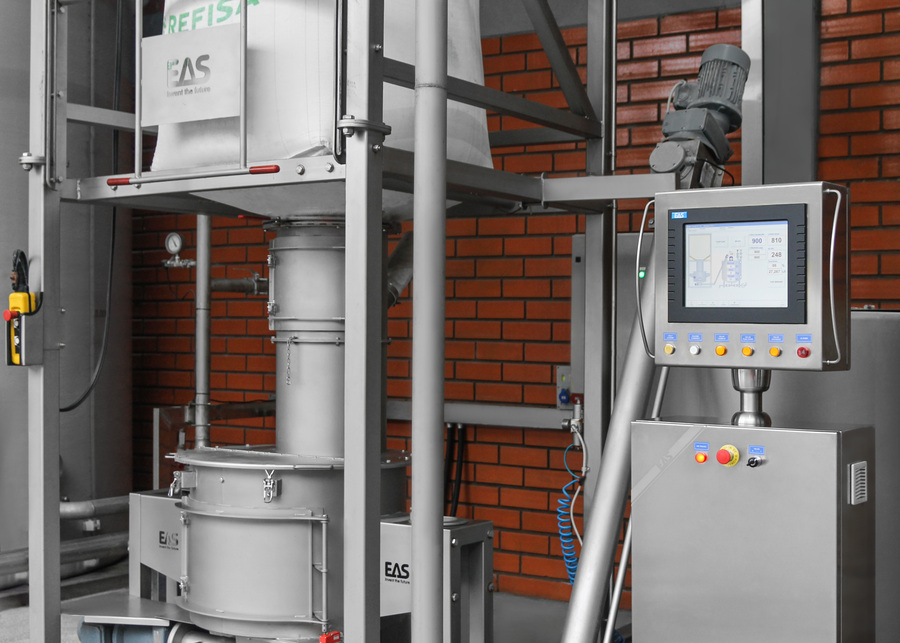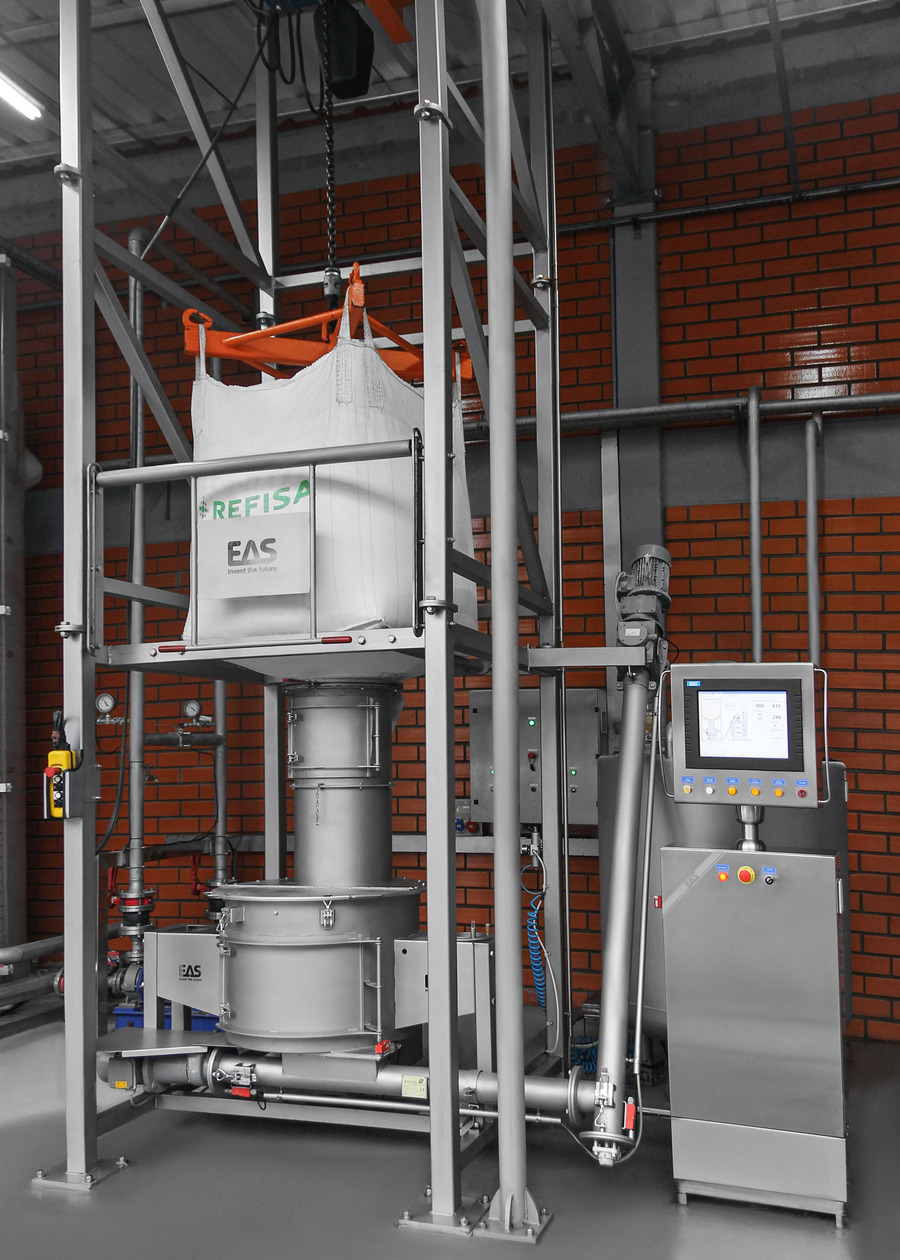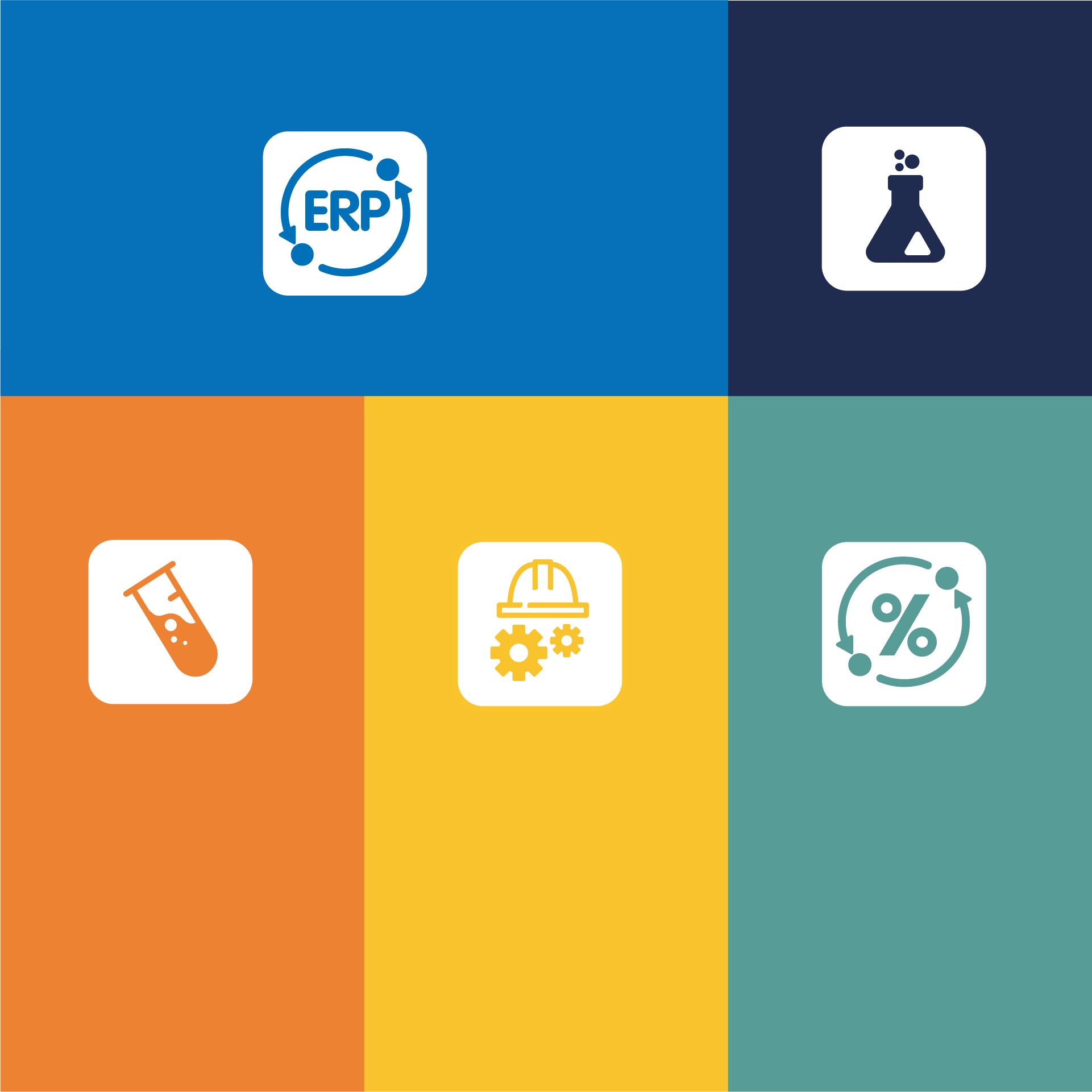HJ Tinturaria relies on TecnoSal on their way towards automation 4.0 for salt dosing
If there is one thing that characterizes HJ Tinturaria, it is their aim to ally themselves with 4.0 technology to fill their ideas with colour and transform their projects into …

If there is one thing that characterizes HJ Tinturaria, it is their aim to ally themselves with 4.0 technology to fill their ideas with colour and transform their projects into fashion and functionality.
This family company, started in 1992, establishing their business in the Brazilian town of Brusque. Their know-how and personality have led HJ Tinturaria over the years to business success, becoming one of the leading companies in the textile sector in Brazil.
The figures speak for themselves. Up to 30,000 catalogued colors are produced on its 80 high-tech machines mill with a production capacity of up to 90 tons of fabric per day. A company with a people-centered philosophy, employing 300 families and committed to the welfare of their employees.
HJ Tinturaria is also synonymous of sustainability, ensuring a green production that returns 120,000 litres of clean water to nature, and contributing to the reforestation of the area by planting 2.5 million seeds.
The project challenges
Having already automated the dyes and chemicals, HJ Tinturaria saw the opportunity to modernize the dosing process of one of the factory’s most voluminous product: the salt.
With the high large volume of production, they handle every day, the amount of salt applied to several processes is huge. The brine dosing automation becomes extremely important in order to improve productivity and workflow.
Solution proposed by EAS

From EAS we proposed the incorporation of TecnoSal to its machine park.
TecnoSal is a fully automated system for the dissolution and storage of brine and powder products on a large scale.
This system is controlled by out automation Atlantis, which connected to InfoTint or a third party MES software allows the automatic preparation and dispatch of brine solutions in a stable way, obtaining excellent results.
Benefits and ROI of the project
- Productive gain
As the brine buffer is prepared in advance, the machines are not dependent on the manual insertion of this input. Through a pressurized line at the time of machine filling, the brine will be prepared without waiting times or manual processes.
- Process logistics
The daily handling of hundreds of sacks of salt for production is eliminated, improving the quality of work and the health of the operators.
- Salt savings
Although it is not one of the most expensive raw materials, it has a significant consumption volume and, in general, a large volume of wastage during manual handling.
For example: For example: to obtain a solution of 43 kg of salt, we must handle 2 bags of 25 kg each, considering that one of the bags must be subtracted the amount left over to reach the desired kilos.
This makes it difficult to calculate the exact 23 kg to add to the full 25 kg bag and complete the desired weighing for the dissolution, generating the extra process with an associated cost both in terms of waste and operator time.
With TecnoSal this weighing is done automatically from the dissolution tank. The machine automatically weighs and sends the exact amount of salt to the preparation tank. Therefore, the handling process of the operator is eliminated, achieving a higher precision with the exact weighing. Product waste is also eliminated as TecnoSal takes care of everything, using all the salt in the preparation.
- Improvement of 2 key points in the quality of the process
- The fact that the salt is diluted when it enters the machine provides greater homogeneity in the bath, achieving the same concentration in the whole area of contact with the fabric.
This makes a difference, as when it is introduced through the auxiliary tank of the machine, it has a much higher concentration at the moment of introduction.
- As the process is automated, the amount of salt is exact. During the manual process we find variations in the weights of the salt bags, even in the weighing of smaller quantities, so we must apply many density corrections during the process.
TecnoSal promotes a significant improvement in final quality and reduces the need for operator interaction during the dyeing process.
- Salt in Big Bag
Thanks to this larger volume format, salt is packaged in 1000 kg big bags. This represents a saving compared to 25 kg bags, not for its quality but their packaging process.
- Improvements in the working environment
By removing the salt handling from the dyehouse and concentrating it in an area prepared for this purpose, the dispersion of this input is avoided and consequently the corrosion and contamination of the points that can rust, increasing the useful life of the equipment and improving the optimisation and aesthetics of the plant.
From EAS we want to contribute to the textile industry, in the adaptation of our machinery to technology and industry 4.0, an investment that will also allow you to optimise resources, minimise your environmental footprint without underestimating the quality of the textile product.
If you want more information, tell us about your project, we will be happy to advise you without obligation. Write to us! We also invite you to follow us on our LinkedIn page.





